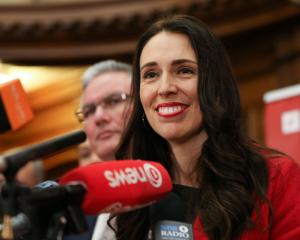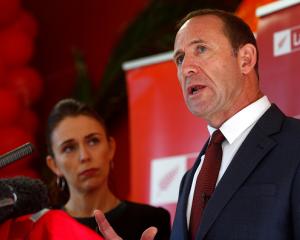
While Labour has several tax specialists of international ranking backing the introduction of a capital gains tax (CGT), other tax specialists are claiming the administrative costs will be overwhelming, largely because of the complexity of CGT.
Labour leader Phil Goff estimates the tax take in the first year, from 2013, will be $78 million and over 15 years $26 billion, but in an interview yesterday he acknowledged he had no costings on collecting and enforcing the wide-ranging tax regime, for either the first year or the 15-year period.
"The costs will be no higher than income tax is now," he said, but agreed he did not know what that figure was at present either.
Just as National has hung its election hat on proposing a partial sale of state-owned assets, Labour's gamble is the introduction of its across-the-board and "fair" CGT, which will be used to repay national debt, give some tax breaks and help grow the economy.
Many New Zealanders have in the past three decades built up equity and asset value in second homes, while at the time renting them out, with a view to creating a retirement nest-egg.
"A 15% tax is not draconian. Tax is paid on income and investment ... Why should people not pay on capital gains? Everyone should be treated equally," Mr Goff said.
When asked what claim a government had to take tens of thousands of dollars from would-be retirees selling a property, he emphasised it was not a retrospective tax, but based on valuations from 2013 where they were "only paying 15%" on any actual capital gain.
Mr Goff said the previous property boom had pushed up New Zealand's interest rates, foreign exchange rates subsequently spiralled and the export sector's costs had risen correspondingly.
He said introducing a CGT was a "fairer tax system all round".
There were no plans for IRD to get a fiscal boost to administer the CGT regime, or plans to overhaul the present taxation, a call increasingly being made by tax specialists.
"It's one step at a time," he said of any overall review or overhauling of the tax regime.
Mr Goff said for every $1 IRD received to administer tax at present, it got a return of $6.
He questioned why, while property investment amounted to $200 billion, the tax revenue from that sector came in at minus $500 million.
He quoted reports from the International Monetary Fund and Organisation for Economic Co-Operation and Development that pointed out New Zealand, Turkey and Switzerland were the only OECD countries not applying CGT.
"Tax loopholes already cost millions to enforce. The IMF and OECD reports have repeatedly said this is a massive problem for New Zealand," Mr Goff said.
Tax specialists spoken to in Dunedin have said the present tax regime requires a complete overhaul, especially given the CGT will add layers of complexity to the existing regime.
With both Labour and National trying to shift people away from the bubble-prone property sector, Mr Goff claimed a partial sell-off of state-owned enterprises proposed by National would be good only for lawyers and sharebrokers, with profits to overseas shareholders.
However, he rejected the suggestion by tax specialists that the CGT would be a "boon" for accountants, valuers and tax specialists, as the CGT would close existing loopholes and would increase revenue.
As expected, National's Associate Finance Minister Steven Joyce has claimed Labour's CGT would add $18.5 billion to the Crown's net debt, and the proposal had underestimated billions of dollars needed to borrow to maintain Government capital investment, extra interest costs and overestimated revenues.
Mr Goff said Mr Joyce's figures were also out, being wrong by about $2.2 billion.
Capital gains tax
Assets taxable at 15%
• Investment properties
• Commercial properties
• Businesses Shares
Asset exemptions
• Family home
• Farm home/section
• Collectables
• Retirement payouts
• Bank term deposits










